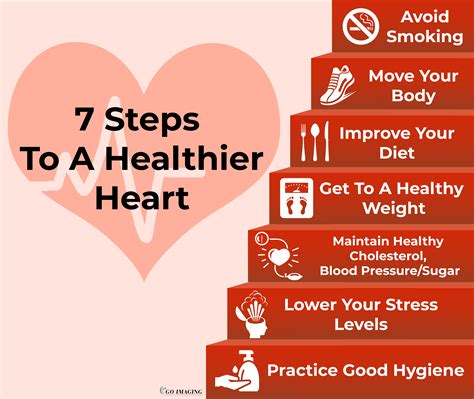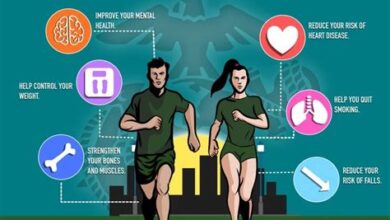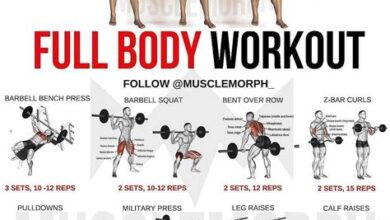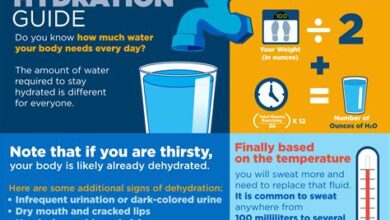Cardiovascular Health: Tips for a Healthy Heart

Learn the importance of cardiovascular health, heart-healthy diet tips, physical activity incorporation, stress management, and risk factor monitoring for a healthier heart.In today’s fast-paced world, prioritizing cardiovascular health is essential for maintaining a healthy and active lifestyle. By understanding the importance of cardiovascular health and implementing small but impactful changes to our daily routines, we can significantly reduce the risk of heart-related issues. This blog post will explore the key factors in promoting a healthy heart, including heart-healthy diet recommendations, the incorporation of regular physical activity, stress management techniques, and monitoring and managing risk factors. With the right knowledge and tools, we can all take proactive steps towards a healthier heart and overall well-being. So, let’s dive into the world of cardiovascular health and discover effective tips and strategies for nurturing and protecting our most vital organ.
Importance of Cardiovascular Health
Cardiovascular health is vital for overall well-being and longevity. The heart is a crucial organ that pumps blood and nutrients throughout the body, and it requires proper care to function optimally. Maintaining cardiovascular health can help reduce the risk of heart disease, stroke, and other cardiovascular conditions. By focusing on cardiovascular health, individuals can improve their quality of life and increase their lifespan.
Adopting a heart-healthy lifestyle can have a significant impact on cardiovascular health. This includes eating a balanced diet, engaging in regular physical activity, and managing stress levels. By making these lifestyle changes, individuals can lower their risk of developing cardiovascular diseases and maintain a healthy heart.
Regular check-ups and screenings are also crucial for cardiovascular health. Monitoring blood pressure, cholesterol levels, and other risk factors can help identify potential issues early and allow for prompt intervention. By prioritizing cardiovascular health, individuals can take proactive steps to protect their hearts and enjoy a higher quality of life.
Heart-Healthy Diet Recommendations
When it comes to maintaining a healthy heart, the food you eat plays a crucial role. A heart-healthy diet should focus on consuming foods that are low in saturated fats, trans fats, cholesterol, and sodium. These can contribute to high blood pressure and heart disease, so it’s important to limit their intake. Instead, emphasize on consuming a variety of fruits, vegetables, whole grains, lean proteins, and healthy fats such as avocados, nuts, and olive oil. These foods are rich in nutrients like fiber, antioxidants, and omega-3 fatty acids, which have been proven to benefit heart health.
In addition to selecting the right types of foods, it’s also important to pay attention to portion sizes and meal frequency. Overeating can lead to weight gain and obesity, which are both risk factors for heart disease. Aim for smaller, balanced meals throughout the day to keep your energy levels stable and your metabolism active. It’s also helpful to avoid skipping meals, as doing so can lead to overeating later on and cause fluctuations in blood sugar levels.
Incorporating heart-healthy cooking methods can also make a significant difference in your diet. Instead of frying foods, try steaming, baking, grilling, or sautéing with minimal oil. This helps to retain the natural flavors and nutrients of the ingredients without adding unnecessary fats and calories. Experimenting with herbs, spices, and other flavor enhancers can also reduce the need for excessive salt and sugar, making your meals not only heart-healthy but also delicious.
Incorporating Regular Physical Activity
Regular physical activity plays a crucial role in maintaining a healthy heart. Engaging in consistent exercise helps to improve cardiovascular health, strengthen the heart, and reduce the risk of developing heart disease. It is recommended to engage in at least 150 minutes of moderate-intensity aerobic activity or 75 minutes of vigorous-intensity aerobic activity per week, along with muscle-strengthening activities on two or more days a week.
One effective way to incorporate regular physical activity into your daily routine is by finding activities that you enjoy. Whether it’s taking brisk walks, cycling, swimming, or dancing, choosing activities that you find enjoyable increases the likelihood of staying consistent with your exercise regimen. Additionally, varying your physical activities can help target different muscle groups and prevent boredom.
Setting specific goals and creating a schedule for physical activity can help ensure that you prioritize exercise and make it a regular part of your routine. Whether it’s scheduling a workout session in the morning before work or participating in fitness classes after work, sticking to a consistent schedule can help make physical activity a habit.
Stress Management for Heart Health
Stress Management for Heart Health
Stress can have a major impact on our overall health, especially our cardiovascular health. When we experience stress, our body releases hormones that can raise our blood pressure and increase our heart rate. Over time, this can put a strain on our heart and increase our risk of developing heart disease. It’s important to find effective ways to manage and reduce stress in our lives in order to protect our heart health.
One way to manage stress is to practice relaxation techniques, such as deep breathing, meditation, or yoga. These activities can help to calm the mind and body, reduce tension, and lower stress levels. Making time for activities that we enjoy and find fulfilling can also help to reduce stress. Whether it’s spending time with loved ones, engaging in a hobby, or taking a nature walk, finding moments of joy and relaxation can have a positive impact on our heart health.
In addition to relaxation techniques and enjoyable activities, it’s important to address the sources of stress in our lives. This may involve setting boundaries, learning to say no, or seeking support from a therapist or counselor. By addressing the root causes of stress and finding healthy ways to cope, we can protect our heart health and reduce our risk of developing cardiovascular problems.
Monitoring and Managing Risk Factors
One of the most important steps in maintaining a healthy heart is to monitor and manage risk factors that can contribute to cardiovascular disease. This includes keeping tabs on your blood pressure, cholesterol levels, and blood sugar levels. Regular check-ups with your healthcare provider can help identify any potential issues and allow for early intervention.
It’s also important to maintain a healthy diet and engage in regular physical activity to help manage risk factors. Consuming a diet that is low in saturated fats, trans fats, and sodium and high in fruits, vegetables, whole grains, and lean protein can help keep cholesterol and blood pressure levels in check. Engaging in at least 150 minutes of moderate-intensity aerobic activity each week can also help improve heart health and lower the risk of developing cardiovascular disease.
In addition to diet and exercise, managing stress levels is essential for heart health. Chronic stress can contribute to high blood pressure and heart disease, so finding healthy ways to cope with and reduce stress is important. This can include practices such as mindfulness meditation, yoga, or spending time engaged in hobbies or activities that bring joy and relaxation.





